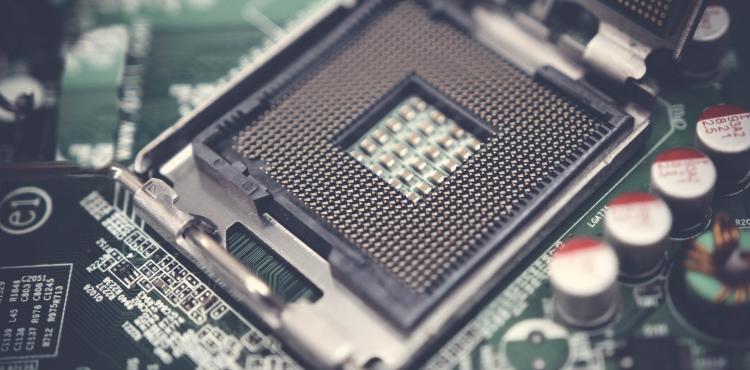
The European Union aims to double its global market share of chips from 10% to at least 20% by 2030 with specific legislation, in order to guarantee the future technological sovereignty of the Member States, thus reducing over-reliance on global leaders of semiconductor sector, like Asian countries and the USA. In order to achieve this goal, the EU Council has recently adopted its position on the proposal for a regulation establishing a framework of measures to strengthen the European semiconductor ecosystem, namely the "chip regulation".
Chips are essential for a wide range of technological and digital products, such as cars, household appliances and electronics. Due to geostrategic problems and disruptions in supply chains, the European industry is currently facing challenges in supplying semiconductor. The objective of chip regulation is to reduce the vulnerabilities of the EU and its dependencies on foreign actors, in order to improve the EU’s security of supplying, resilience and technological sovereignty in the field of chips.
The chip regulation will mobilise public and private investments worth 43 billion euros, focusing on three pillars:
- the "Chip for Europe" initiative to support technological capacity building and related research and innovation activities;
- a new framework to ensure security of supplying and resilience by attracting more investment;
- a mechanism to monitor the semiconductor supply chain and coordinate actions in crisis situations.
The regulation proposes the option of a new legal instrument, a European Consortium for Chip Infrastructure (ECIC). ECIC would be a legal entity capable of implementing actions and other tasks funded under the "Chip for Europe" initiative.
The Council clarifies the voluntary nature of the establishment of an ECIC and specifies its openness to different legal forms of cooperation and to other participants. It also clarifies the rules for selecting funding proposals not strictly based on a specific legal form of cooperation.
The Commission proposal on chip regulation provides for the allocation of 3.3 billion euros of the total amount to Pillar 1, the "Chip for Europe" initiative. The Council clarifies that the amount from Horizon Europe, amounting to 1.65 billion euros, should be committed to research and innovation and that funding under the Digital Europe programme should be used for capacity building activities.
In order to comply with the existing interinstitutional agreement on the multiannual financial framework, the Council’s mandate does not provide for the reallocation of funds decommitted under Horizon Europe, as proposed by the Commission. Given that this entails a reduction of 400 million euros in total funding from the Digital Europe programme, the position adopted by the EU Council is accompanied by a statement calling on the Commission, the Member States and the European Parliament to seek alternative solutions in order to maintain the overall budget of 3.3 billion euros.
Other proposed changes to the Commission proposal include clarifications on:
- the definition of a "first of its kind" semiconductor manufacturing plant;
- formulation of the general and operational objectives and content of the "Chip for Europe" initiative;
- the establishment of a European network of centres of expertise on semiconductors, integration technologies and system design;
- the requirements to be met by EU integrated production facilities and open foundries, in particular with regards to the positive spin-off effects on the EU semiconductor value chain;
- the processing of mandatory requests for information during a crisis;
- the scope and implementation of the emergency instrument package;
- the application, by means of fines and penalties, of requirements related to the requests, the notification of information and comply with orders classified as priority.